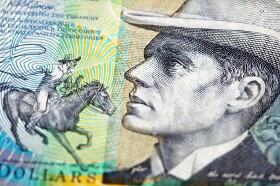The Australian dollar has started this trading week with a small rally but not before touching the lowest level since May 2009 against its US counterpart. Can the Aussie stand its ground or will it reach new lows? Unfortunately, things do not look good for the Australian currency.
The main focus for Forex traders and the biggest negative factor for the currency is the prospects for the Grexit after Greece refused to accept austerity measures needed for securing the next tranche of the bailout. The resulting confusion and fear on the market will likely limit gains of any growth- and risk-related currencies, including the Aussie. Of course, this may change as news and speculations will be hitting the market, but it is unlikely that there will be events that improve the market sentiment. However, âunlikelyâ does not mean âimpossible.â
Alas for the Australian currency, fundamentals in Australia itself are not expected to be particularly supportive either. The Reserve Bank of Australia will hold its monetary policy meeting tomorrow. Analysts do not anticipate changes to the policy, but the statement of the central bank can have a big impact on the currency nonetheless. Considering the easing bias of Australian policy makers, that impact is not likely to be positive.
On top of all the negative factors already discussed, economists predict that the employment report released on Friday will be rather bad, showing a decrease of employment by about 2,000 jobs and an increase of the unemployment rate by 0.1 percentage point to 6.1 percent.
As one can see, there are few reasons to be long on the Australian dollar. Of course, something unexpected can happen or the currency may simply defy fundamental forces. But for those traders who prefer to avoid excessive risk it is better to keep away from the Aussie.
If you have any questions, comments or opinions regarding the Australian Dollar,
feel free to post them using the commentary form below.



Be First to Comment